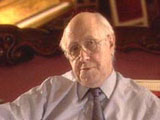|
|
TODAY.AZ / Society
Legendary cellist Rostropovich buried in Moscow
30 April 2007 [09:12] - TODAY.AZ

Around 2,000 people, many of them bearing flowers, clapped one last time for the master cellist and conductor after the burial, which followed a funeral in the golden-domed Christ the Saviour cathedral in central Moscow.
Rostropovich was buried alongside leading Russian cultural and political figures at Novodevichy, including Russia's first president Boris Yeltsin, whose funeral was on Wednesday.
Rostropovich died on Friday in a Moscow cancer clinic at the age of 80 and joins his musical mentors, celebrated composers Dmitry Shostakovich and Sergei Prokofiev, who are buried in the same cemetery.
At the funeral service, his widow, celebrated opera singer Galina Vishnevskaya, bent over the open coffin, stroked his head and kissed him as Russian Orthodox priests chanted prayers.
Among those attending the funeral were Ilham Aliyev, president of Azerbaijan, the former Soviet republic where Rostropovich was born in 1927, violinist Maxim Vengerov and Queen Sofia of Spain.
Mourners laid flowers by the coffin in the marble-lined cathedral, which was rebuilt with funds that Rostropovich helped raise as an exact replica of a church in the same location that was destroyed in Soviet times.
Many paid tribute to the personal qualities of a man who was forced to flee the Soviet Union for his freedom ideals and who returned to Russia in August 1991 to help the country's first president Boris Yeltsin defy a Soviet coup.
"Russia has been orphaned," said a tearful Leila Kacharava, 49, a teacher.
"He was a guide in life. He had the kind of character traits that make you want to be like him. He was an extraordinary man, not just because he was a very talented musician," Kacharava said.
Rostropovich earned his fame as a passionate musician who worked in partnership with many of the leading composers of his day. He was also a personable man who preferred to be known simply as "Slava."
He rebelled against Soviet oppression and, in one of the iconic moments of his career, played an impromptu cello recital by the Berlin Wall as that Cold War symbol was torn down by protesters in November 1989.
Some mourners on Sunday remembered the time when Rostropovich returned to Russia in 1991 and played the cello opposite the headquarters of the feared KGB to throngs of pro-democracy demonstrators.
"I will never forget seeing him in August 1991... This little fragile man was ready to lose everything for his country," said Nikolai Lichankov, a 37-year-old lawyer.
Thousands of mourners, many of them young musicians, filed past Rostropovich's open coffin on Saturday at a lying in state in the flower-filled hall of the main music conservatory in Moscow, where he studied.
It was from the same Moscow conservatory stage that Rostropovich bade farewell to the Russian public in 1974 when he was forced to flee after being hounded by Soviet authorities.
In 1970 the cellist wrote an open letter to the newspaper Pravda defending dissident writer Alexander Solzhenitsyn, who had become the target of official abuse after receiving the Nobel Prize for literature.
The letter turned Rostropovich into a marked man for the Soviet authorities.
He made a dramatic return to Russia in 1991 to support Yeltsin in defying an attempted Soviet military coup -- just months before the final fall of the Soviet Union -- and went on to fund charities in the new Russia.
Rostropovich was born on March 27, 1927 to a musical family in Baku, the capital of then-Soviet Azerbaijan, on the shores of the Caspian Sea. He gave his first concert at the age of 13. AFP
URL: http://www.today.az/news/society/40193.html
 Print version
Print version
Connect with us. Get latest news and updates.
See Also
- 13 December 2025 [10:30]
Military education and training in focus at Azerbaijan–NATO meetings - 12 December 2025 [13:27]
Azerishiq modernizes electricity infrastructure in Khojavend - 12 December 2025 [10:51]
President Ilham Aliyev, First Lady Mehriban Aliyeva visit grave of National Leader Heydar Aliyev - 12 December 2025 [00:07]
President Ilham Aliyev shares post on commemoration day of National Leader Heydar Aliyev - 12 December 2025 [00:05]
First VP Mehriban Aliyeva shares post on commemoration day of National Leader Heydar Aliyev - 12 December 2025 [00:00]
Baku’s Embassy in Pretoria honors National Leader Heydar Aliyev - 11 December 2025 [15:43]
US-brokered peace plan provides solid basis for normalization between Baku and Yerevan, says Moody’s - 11 December 2025 [14:18]
Trial Continues at Baku Military Court Against Armenian Citizens Accused of Crimes - 11 December 2025 [12:43]
Azerbaijan, Syria discuss media cooperation at Abu Dhabi summit - 11 December 2025 [10:42]
Azerbaijan–Latvia Interparliamentary Group meets with Latvian Ambassador in Baku
Most Popular
 The intricacies of diplomacy: why is the 3+3 meeting postponed?
The intricacies of diplomacy: why is the 3+3 meeting postponed?
 President Ilham Aliyev receives UK and Northern Ireland Trade Envoy to Azerbaijan
President Ilham Aliyev receives UK and Northern Ireland Trade Envoy to Azerbaijan
 The Armenian Crusade: The Vardanians are trying to play the religious card against Baku
The Armenian Crusade: The Vardanians are trying to play the religious card against Baku
 Upcoming Türkiye-Azerbaijan business forum to convene in Baku
Upcoming Türkiye-Azerbaijan business forum to convene in Baku
 Baku, Tashkent sign 2026 military cooperation plan
Baku, Tashkent sign 2026 military cooperation plan
 President Ilham Aliyev makes phone call to Chairman of Halk Maslakhaty of Turkmenistan
President Ilham Aliyev makes phone call to Chairman of Halk Maslakhaty of Turkmenistan
 Experts highlight innovation barriers and opportunities in Next-Generation Oil and Gas Coating Technologies
Experts highlight innovation barriers and opportunities in Next-Generation Oil and Gas Coating Technologies
